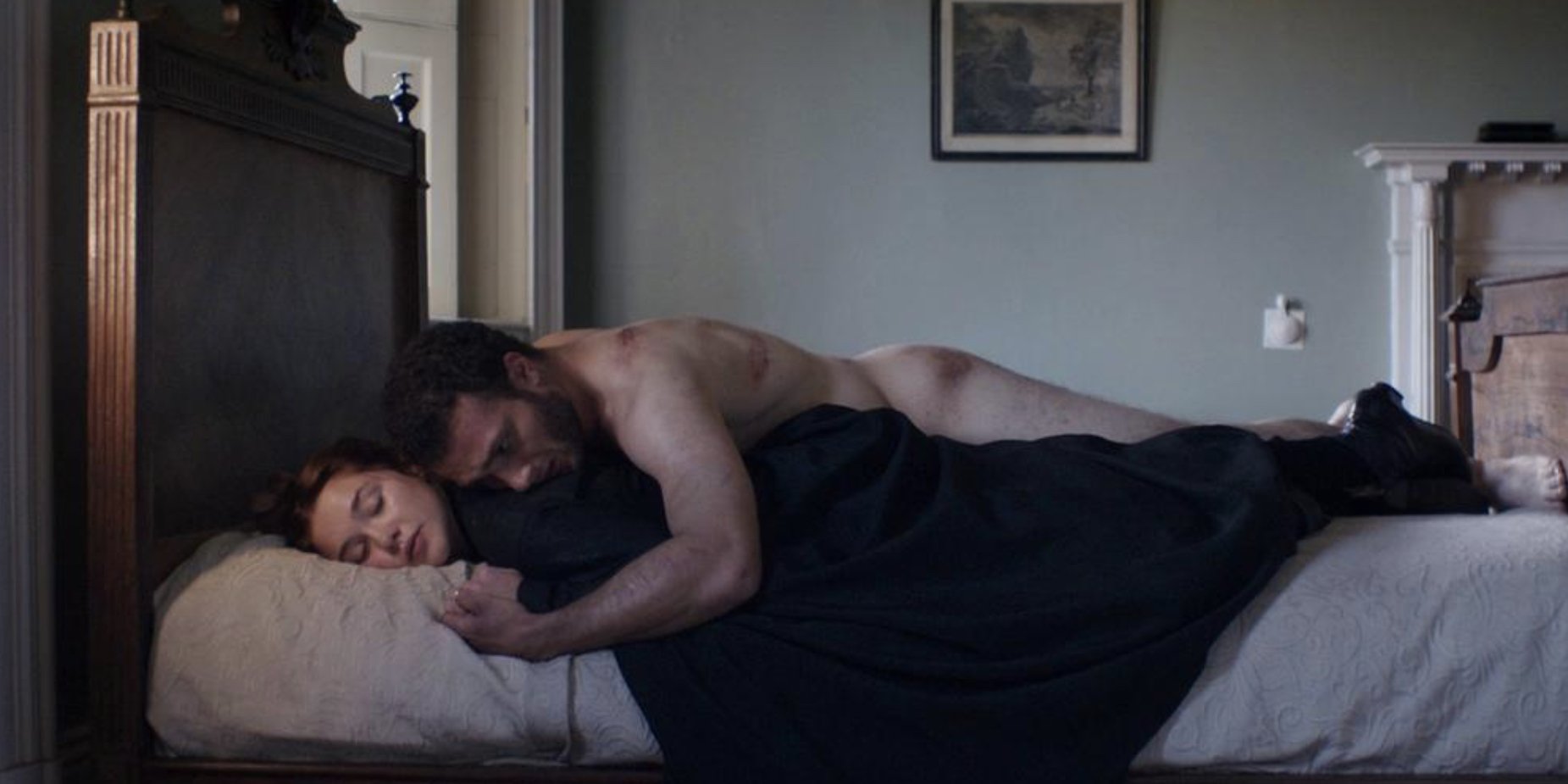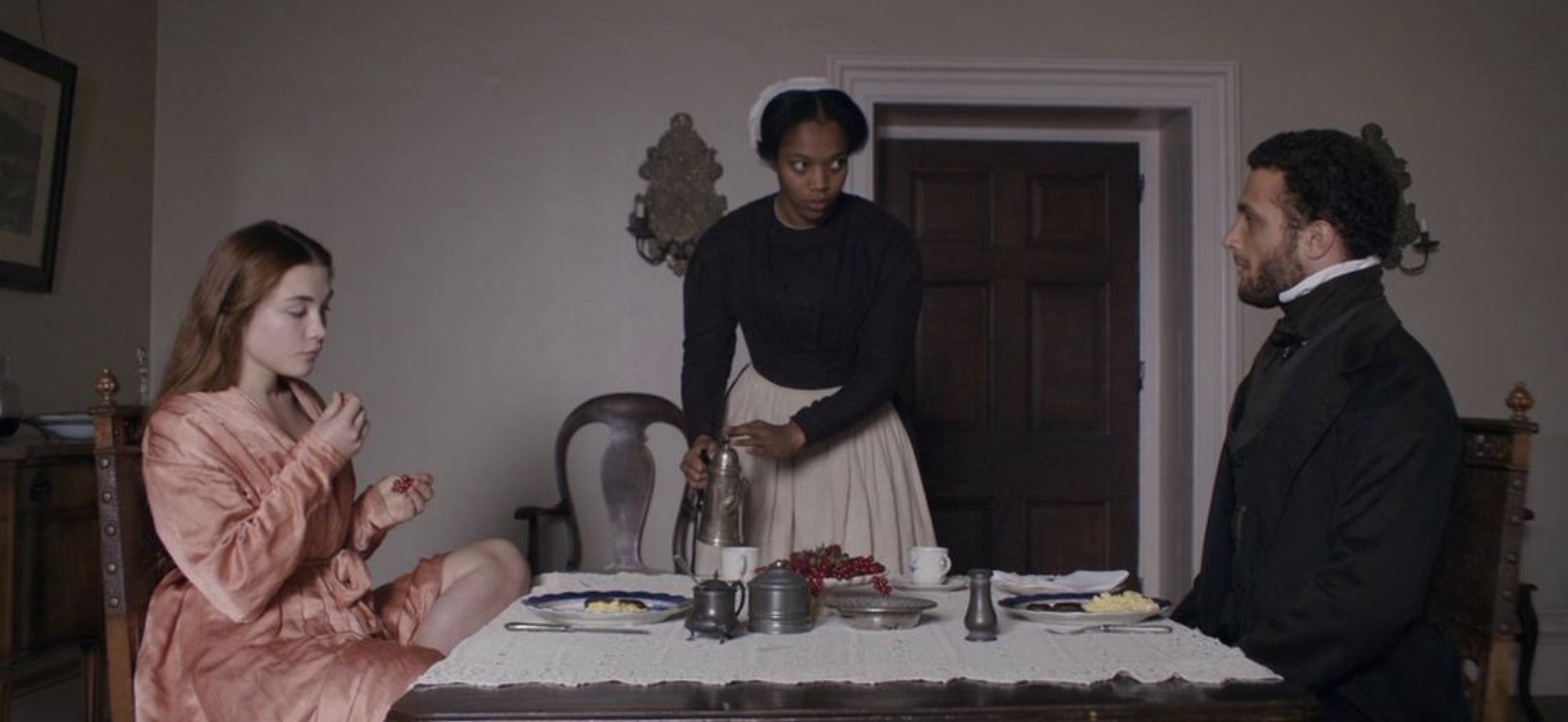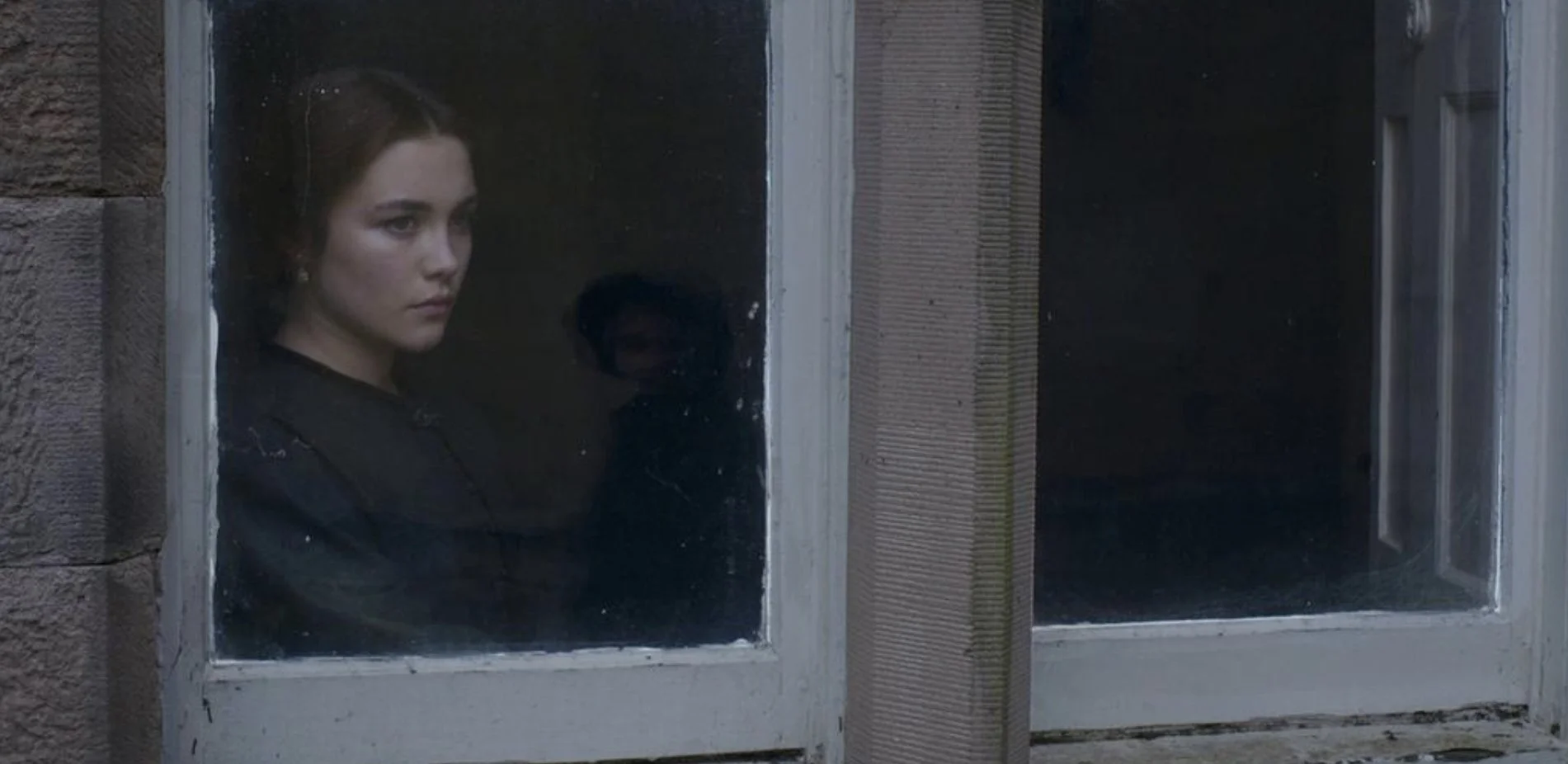Lady Macbeth (Dir. William Oldroyd, 2016) - Review
Lady Macbeth visits us, initially, with a very English tableau: a bored maquette of a woman, unhinging her jaw in time to the anaemic strains of Victorian hymnody.
The psychodrama which unfolds over the rest of the film- with a breakout performance for star Florence Pugh, and a sickening, rotten depiction of the monotony of British domesticity bubbling beneath- turns that predictability on its head, pouring its acidic gaze over matrimony, parenting, and home economy, with a silent swish of muslins, and a quiet clink of tea services, that echo louder than any of its measured violences.
Adapting a short story, The Lady Macbeth of the Mtensk District, most notably drawn into an opera by Shostakovich, director William Oldroyd moves the action to the North of England in the later gasps of the Industrial Revolution: a windswept desert of taffeta and petticoat hoops, where the heroine and Lady, Katherine, (Florence Pugh) finds herself swiftly imprisoned by her older, boringly deviant husband.
Trapped in a purgatory of ticking parlour clocks and distant church bells, the heroine of this nearly-silent film succumbs, along with her audience, into an underworld of dirt and action. When she stumbles upon her maid, Anna (Naomi Ackie), slung up and tormented as a ‘pig’ by the estate’s workers after her husband’s departure, Katherine descends into an inverted mirror-world of her Victorian propriety: an unconscionable attraction to Sebastian (Cosmo Jarvis), the estate worker whose violent tendencies unleash the mistress’s less proper instincts.
The film draws particular heft from its lack of conventional structure. Unlike other period realism which might rely on set pieces- a grand ball, a local wedding- for narrative tension, Lady Macbeth sets itself almost exclusively within the uncomfortable, unsatisfying explorations of its protagonists, whose catastrophic personal adventures balance the total stasis of their social doldrums.
Katherine begins the film in a state of clinical asexuality: traded off to her mustachioed, awkward husband Alexander (Paul Hilton), whose perversions we are forced to experience along with the awkward bride- from an uncomfortable distance, turned to face the wall as her husband indulges himself. As the power of the barren landscape, and its equally elemental social forces, take a hold on the young woman, the silent yet consistently disturbing gaze of the camera drags us into a vernacular long silenced in the world of 19th century social realism: a simmering anger and sexual tension, under the model of domestic matrimonial bliss.
With her turn in Midsommar, Florence Pugh has become something of a poster child for the ‘good for her’ genre: a narrative where a young woman grows slightly unhinged and, with a few grisly side-acts, puts the lacklustre men in her life to justice. In many ways, Lady Macbeth provides the template for this trajectory: we do not empathise with her actions, or endorse them, but the unflinching portrayal of the heroine’s conditions lead to at least an equivocal headshake from the average viewer.
Katherine, like most leading ladies of her vintage, has no power. She marries; the cold, white-lit sepulchre of her husband’s home absorbs her. The corsets and bone china of the family pile restrict her every movement, from her waking to the boredom naps which seem the only logical response to the constricting, regimented tyranny of the northern bourgeoisie. Her father in law, Boris (Christopher Fairbank) forces her to stay up for the entertainment of the local gentry, who come to gawp at the family’s latest acquisition. When Katherine falters, Boris enlists Anna to keep her up. The women find no solidarity in their shared subjugation: Anna scrubs Katherine’s back raw and seems to take silent delight in depriving her of sleep. Fully aware of their oppression, the two are powerless- or simply too weak- to revolt against it in a meaningful way.
In contrast to the animal urges of its protagonists- the selfish desires that drive them closer and closer to the state of nature- the film’s frames instil a measured, thoughtful beauty, reminiscent of Renaissance still lifes with their incorporation of simmering gendered violence at the hearth. The luminous shots of the moors, of rich feasts framed in bone and silver, Katherine’s face wobbling at the top of a confection of blue silk and tight lacings, distil a visual expression of the quiet tension which constantly simmers on the verge of explosion into sex or violence. The absence of a soundtrack exacerbates the characters’ reticence- the slow blink of the child who throws the film’s third act counterbalancing the tenderness that grows, silently, between Katherine and Sebastian as they settle into their new roles as lord and lady of the manor, acted with the naturalism of a medieval morality play.
The silence, in turn, puts the dramatic impetus on the viewer; the visually and emotionally rich yet claustrophobic setting forces its audience into an internal dialogue, with a seemingly endless buffet of raw yet immediately comprehensible action. The cathartic fun of the story drags us into each character’s head in turn, their slippery, lustful tread over a treacherous scaffold of power and privilege. An undercurrent of sadism which binds each character to another- from the disinterested older husband repressing his younger wife, to the dubious passion that unites Sebastian and Katherine over the other servants- keeps the audience at arm’s length, with enjoyable results. We silently cheer Katherine on as she sips her tea, barely blinking an eyelid at the screeching demise of her tyrannical father in law. The unbroken single shot as the new lord and lady take a brutal course to secure themselves, as the expense of the new heir, leaves us little time to wonder what goes on in their heads, as Katherine fulfils the precedent which gives the film its name.
The heart of the revenge tragedy- a genre which inspired Shakespeare and his contemporaries, and which seems a little dampened in the romanticism that followed in more ‘civilised’ eras- beats fiercely in Lady Macbeth. Like Satan, the Duchess of Malfi, or any anti-hero to emerge in the modern era, Katherine- the Lady- compels us with her verve to test the boundary at which morality might crack. We can’t sympathise with her or support her- yet, having seen the alternative life which frames the awful path she ultimately chooses, it’s hard not to give at least a begrudging nod to well-executed evil.






